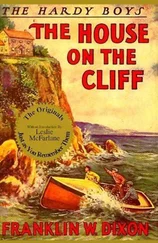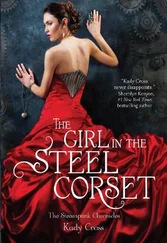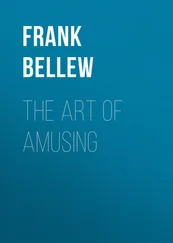Frank Abagnale - The Art of the Steal
Здесь есть возможность читать онлайн «Frank Abagnale - The Art of the Steal» весь текст электронной книги совершенно бесплатно (целиком полную версию без сокращений). В некоторых случаях можно слушать аудио, скачать через торрент в формате fb2 и присутствует краткое содержание. Год выпуска: 2001, ISBN: 2001, Издательство: Broadway Books, Жанр: Старинная литература, на английском языке. Описание произведения, (предисловие) а так же отзывы посетителей доступны на портале библиотеки ЛибКат.
- Название:The Art of the Steal
- Автор:
- Издательство:Broadway Books
- Жанр:
- Год:2001
- ISBN:9780767910910
- Рейтинг книги:4 / 5. Голосов: 1
-
Избранное:Добавить в избранное
- Отзывы:
-
Ваша оценка:
- 80
- 1
- 2
- 3
- 4
- 5
The Art of the Steal: краткое содержание, описание и аннотация
Предлагаем к чтению аннотацию, описание, краткое содержание или предисловие (зависит от того, что написал сам автор книги «The Art of the Steal»). Если вы не нашли необходимую информацию о книге — напишите в комментариях, мы постараемся отыскать её.
The Art of the Steal — читать онлайн бесплатно полную книгу (весь текст) целиком
Ниже представлен текст книги, разбитый по страницам. Система сохранения места последней прочитанной страницы, позволяет с удобством читать онлайн бесплатно книгу «The Art of the Steal», без необходимости каждый раз заново искать на чём Вы остановились. Поставьте закладку, и сможете в любой момент перейти на страницу, на которой закончили чтение.
Интервал:
Закладка:
LETTING TIME SERVE ME
I wasn’t thinking that way anymore. I had crossed a crucial threshold. Crime no longer seemed romantic or noble, or in any way appealing to me. I had lived a life of incredible intensity. I knew I had made tragic mistakes and I wanted to make amends. So I’d refuse to offer them any advice that would merely perpetuate the treadmill they were on. I’d just brush them off by saying, “Do you just want to come back to the joint again? You know you’ll get caught.”
Don’t misunderstand me, I don’t believe prison rehabilitated me, or in any way fostered my moral and spiritual reform. A bright light didn’t appear and God didn’t speak to me. I simply grew up. I was a teenager when I was forging checks. As I got older, my conscience began to bother me. When I went into a bank at sixteen and wrote a bad check, I’d think, they’ve got millions of dollars, they won’t miss a few hundred or a few thousand. A couple of years later, I would worry that the teller might lose her job. I started to look at things more rationally and as a more mature person. I had tired of a life where everyone you meet believes you to be someone you’re not. It’s pretty hard to have a serious relationship with a woman when you’re lying and using a phony name.
And so, with my changed outlook, I never sat around thinking of my next scam. I had no idea what I would do when I got out, but whether I ended up roping cattle or selling kitchen appliances, the one thing I was certain about was that I would never pull another scam.
There’s this whole thing about going to prison and serving time, or going to prison and have time serve you. I wanted time to serve me. I managed to get my GED, and I took some college courses to advance my limited education. Above all else, I dearly wanted to get out and rejoin society while I still had the time to construct a new life. I didn’t know what that new life could be, but I was itching to start it.
As a con man, though, I was always given a hard time. My father died, and like all inmates, I expected to be allowed a funeral visit home. But I was denied this routine privilege, because the Bureau of Prisons was afraid that I would escape and embarrass it. All these murderers and violent criminals were allowed funeral visits, but not me.
With my parole rejections, I began to believe that I was going to have to serve every last day of my sentence. I was disturbed and baffled, but in prison you have no rights. Finally, on my third try, after having served three years of my sentence, I was granted parole. When I was asked what city I would like to be paroled in, I said that I didn’t really care. I only asked that it not be New York. My mother and brothers were there, and I didn’t think that I could handle the family situation just yet. I also thought New York offered far too many enticements for someone just embarking on a legitimate life.
I ended up being paroled to Houston, Texas. My instructions were to report to a United States parole officer within seventy-two hours of my arrival. And I was told that it would very much behoove me to find a job within those three days.
WELCOME BACK TO THE REAL WORLD
The real world was beckoning again, but I couldn’t be sure I was ready for it. People who have never been in jail don’t understand what happens to a person. Even if you’re serving a short sentence, when you’re in prison, you become institutionalized. You get up in the morning, and breakfast has been prepared for you. They take care of your medical needs. Your clothes are cleaned and pressed for you. You get lunch. You get dinner. You become dependent. Then, all of a sudden, the government says, you’re free. You’re on the train to Houston. You have no money. You don’t know a soul. Even for an intelligent, resourceful person like myself, it was very difficult. Nobody likes an ex-con, and nobody likes an ex-con less than an employer, whether it’s a bank officer or a bowling alley manager.
Even those who were ostensibly there to help me weren’t that helpful. The supervisor at the parole office was both cold and defensive. He made it clear that, to him, any ex-con was repellent. “I don’t want you here, Abagnale,” he told me. “You were forced on me. I don’t like con men, and I want you to know that before we even start our relationship. I don’t think you’ll last a month before you’re headed back to the joint. Whatever, you had better understand this. Don’t make a wrong move with me. I want to see you every week, and when you get a job, I’ll be out to see you regularly. Mess up, and I’m sure you will, and I’ll personally escort you back to prison.”
I didn’t waste my time with talk. This guy was not going to be any help. I was on my own.
My first job was at a pizza parlor. I was a combination waiter, cook, and managerial trainee. I didn’t bother to tell my boss that I was an ex-convict, and I wasn’t asked. I was an early believer in don’t ask, don’t tell. The work was about as tedious as you might imagine. I liked eating pizza well enough, but I didn’t much care for serving it. On the side, to make ends meet, I drove a bus from the airport to downtown.
No matter how menial the job, I was a good worker. I was even entrusted with depositing the cash receipts at the pizza parlor, and every dollar got to the bank. But after about six months on the job, officials of the chain that operated the place took a closer look into my background in anticipation of naming me a manager of one of their shops. Discovering that I was a federal prison parolee, they fired me.
So I moved on. Within a week, I was hired as a stockboy in a supermarket, assigned to the night shift. Again, when applying for the job, I didn’t point out my dark past. The job wasn’t much, but one day I noticed a customer, a fetching young woman who was in graduate school. We started dating and we really clicked. I didn’t reveal my past for several months, and when I did, while we were sitting on a park bench, she at first found it difficult to accept. But she realized that I was just a naïve kid when I committed the crimes, and that I was a changed man.
Her parents had a harder time warming to the notion of their daughter’s ex-con suitor. She really worked on them, especially her father. She pleaded with him to go talk to my parole officer, for she knew he would tell him how I had changed. That pessimistic parole supervisor had assigned me to a highly supportive and unbiased parole officer who did all he could to elevate my spirits. He was a truly decent man, a born-again Christian with a generous humor who was always bringing up God in our discussions. We had a great relationship.
Finally, to appease her, my girlfriend’s father did call my parole officer. He gave me a good build-up. He said, “I don’t think Frank will ever go back to prison. He went down the wrong road, and he’s smart enough to know the right road now.” But then he had to insert a final thought: “I must tell you, though, I have five daughters, and I wouldn’t let one of them get within six miles of Frank.” That set me back months.
But finally they did accept me, and my girlfriend and I got married soon afterward.
After nine months in the supermarket, the district manager buttonholed me one day and said that they were opening a new store in the suburbs, which would be their first store to stay open twenty-four hours. He told me he wanted me to be the night manager. I was flattered. I liked that job, and I did it well. As always, I had made a point of being presentable and personable, and was dedicated to what I was doing. Then came the familiar story. A security check turned up my checkered past, and once again I was brusquely shown the door.
The truth is, I had felt extremely comfortable being a supermarket manager. I liked overseeing people and making the decisions that had to be made. There were enough complications to the work to intellectually challenge me and satisfy my ego. Had I not been fired, I honestly think that today I would still be running a supermarket, making decisions about canned peas and corn flakes.
Читать дальшеИнтервал:
Закладка:
Похожие книги на «The Art of the Steal»
Представляем Вашему вниманию похожие книги на «The Art of the Steal» списком для выбора. Мы отобрали схожую по названию и смыслу литературу в надежде предоставить читателям больше вариантов отыскать новые, интересные, ещё непрочитанные произведения.
Обсуждение, отзывы о книге «The Art of the Steal» и просто собственные мнения читателей. Оставьте ваши комментарии, напишите, что Вы думаете о произведении, его смысле или главных героях. Укажите что конкретно понравилось, а что нет, и почему Вы так считаете.












